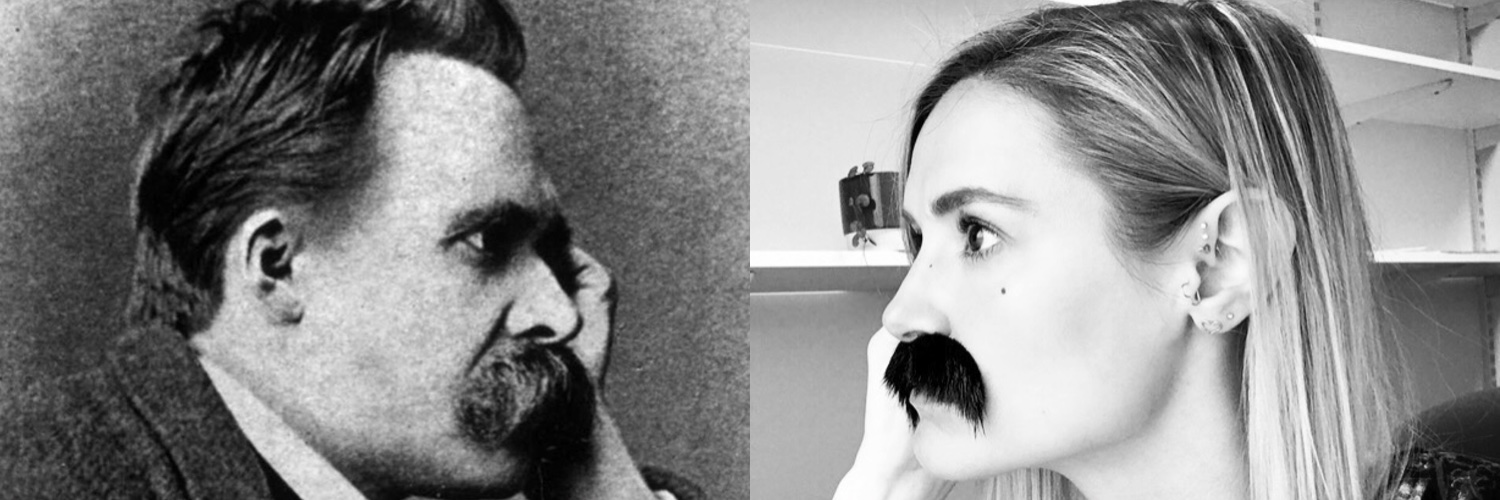
Cory Clark
@ImHardcory
Behavioral scientist. Skeptical of certainty. Director @AdCollabProject. Tweet=🤔, not👍.
1. In 2003, Kahneman published an article in American Psychologist describing the magic of collaborating with Tversky but also lamenting how current modes of scientific disagreement were unnecessarily hostile and unproductive. He hoped for a better way: Adversarial Collaborations


Cognitive Chicanery: Five Ways We Dodge Facts That Offend Us My latest post on Subst@ck! [Link below.]
Next up is our exciting special issue on “Normative Scientific Conflicts,” guest edited by @imhardcory and Maja Graso. Lots of fascinating potential topics for papers in this special issue! For example: · Harm concerns: Is it acceptable for academic journals, professional…
Social scientists today do their work in silos, surrounded only by those who share their assumptions and intuitions. Adversarial collaborations, therefore, may play a key role in stimulating our collective creativity and scientific innovation. New in Theory and Society:…
Insights from 29 scholars who have completed adversarial collaborations (ACs): 1. Humility is a must 2. ACs are hard but produce high quality science 3. Participating in ACs may shake your faith in non-AC science By @calvinisch2 @PTetlock @ImHardcory: link.springer.com/article/10.100…
"A surprising theme that emerged from many participants was an increase in skepticism toward behavioral science." link.springer.com/article/10.100…
An engaging debate, organised by @mitfreespeech on the question of gender-gap in STEM. I highly recommend watching the whole thing, but if short on time, jump to timestamp 22:50 and watch the peerless @ImHardcory shine with her characteristic brilliance. youtube.com/live/ePN-BiHMH…
And the winners of the MIT "gender gap" debate are: @ImHardcory & @CHSommers, who understand that gene- environment interactions, not simply "barriers" & "discrimination," explain why we don't have 50-50 representation across STEM professions. A lively, interesting debate, and a…
1/ Do AI systems discriminate based on gender when choosing the most qualified candidate for a job? I ran an experiment with several leading LLMs to find out. Here's what I discovered:👇
Please help my girlfriend @SaffronMarli recruit participants for her masters dissertation study! Take the study or share it with your followers to encourage them to take it!
Currently in a “situationship” or had a few? Please spare 10 mins for my MSc dissertation study! Survey link below. Situationships = relationships that fall between casual dating and committed partnerships, often lacking clear labels or commitment. app.onlinesurveys.jisc.ac.uk/s/southwales/s…
And the winners of the MIT "gender gap" debate are: @ImHardcory & @CHSommers, who understand that gene- environment interactions, not simply "barriers" & "discrimination," explain why we don't have 50-50 representation across STEM professions. A lively, interesting debate, and a…
‘It’s 2025, not 1970’: MIT hosts all-female debate on alleged gender gap in STEM | The College Fix thecollegefix.com/its-2025-not-1…
Our debate on closing the gender gap in STEM is two weeks from today! Excited to have @CHSommers and @ImHardcory among our great lineup of scholars and practitioners. We hope to see you there, and we'll be streaming it on our YouTube channel as well! (Details in next post.)
📢! We're excited to announce our spring 2025 debate, where we'll will tackle the following resoltuion: RESOLVED: We Must Close the Gender Gap in STEM. The Debate will be held at @MIT on April 30 at 7 PM. More in 🧵👇 (cc: @CHSommers, @ImHardcory)
How has the rise in women in academia led to a cultural shift of the institution? @ImHardcory shared her research in our March Liberal Values Lab. Find the full interview -> youtube.com/live/AUcdKecT3…
Tonight | From Worriers to Warriors: The Cultural Rise of Women with Cory Clark - mailchi.mp/ilvalues.org/w… Join the conversation live on X with @ImHardcory and on YouTube.
Consider submitting commentaries or research articles (length is flexible) for our special issue on scientific conflicts! How do scientists navigate conflict? What norms exist for facilitating and regulating conflict? When are scientific conflicts helpful? When are they a…
Maja Graso & I are co-editing an Issue for @Theory_Society on Normative Scientific Conflicts. Flexible format. All conflicts welcome: Re Open Sci, Peer Review, DEI, Sex, Censorship, Neutrality, Testing, Trigger Warnings, Misinfo, Ad hominems, etc.: link.springer.com/collections/aj…
The cultural rise of women (and thus the influence of their priorities) contributed to at least three changes over the past 10-20 years: Increased equity over merit-based hierarchy Increased harm-avoidance Increased ostracism (e.g., "cancel culture") youtube.com/watch?v=-liIio…
In a conference full of exceptional talks, this one, by the peerless Cory Clark @ImHardcory, stood out. Full video now available below: youtu.be/-liIioemFdQ?fe…
Cory Clark spoke about the rise of women in academia and the shift from merit to equity based norms. She noted that previous audiences have found this talk depressing. But I think her conclusion (on shared values&rationality as a way out of this problem) was uplifting.
People don't like talking about taboos, but they like reading about them in secret🤫 @PsychScience covers our taboos paper--the second most read across all APS journals in 2024--in their latest podcast: psychologicalscience.org/news/utc-2025-…
1. Hot off the press: Taboos & Self-Censorship In a sample of psych profs, we identify points of conflict & consensus regarding (1) controversial empirical claims & (2) normative preferences for how controversial scholarship & scholars should be treated: journals.sagepub.com/doi/full/10.11…
Register to attend the Censorship in the Sciences conference at USC and hear @mdcbowen and @omni_american explain why they started FBT. As a bonus, you'll hear keynotes from @jon_rauch, @JMchangama, @wil_da_beast630, and @glukianoff, as well as talks by @Musa_alGharbi,…